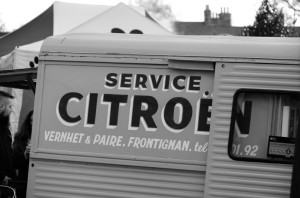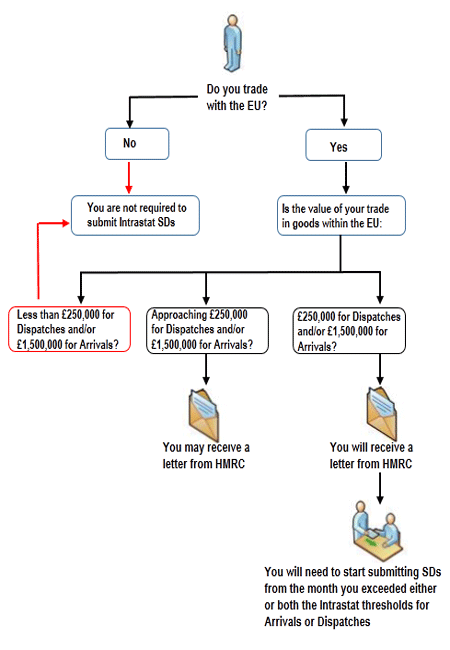 When must an overseas business register for VAT in the UK?
When must an overseas business register for VAT in the UK?
This question is increasingly being asked by overseas entities which do business in the UK. So what are the requirements, and what choices are there?
Compliance
An overseas business must VAT register in the UK if:
• it makes any taxable supplies of goods and services in the UK in the course of furtherance of his business. These supplies could be of any description, but commonly are the sale of goods which are physically located in the UK and the operation of certain events that take place in the UK.
• the business is registered for VAT in another EC country, and it sells and delivers goods in the UK to customers who are not VAT-registered;so-called ‘distance sales’ (details here) and the value of those distance sales exceeds the relevant threshold (currently £70,000).
• it acquires goods in the UK directly from a VAT-registered supplier in another EC country and the total value of the acquisitions exceeds the acquisitions threshold.
• it makes a claim under the EC 8th Directive or EC 13th Directive and subsequently supplies the relevant goods in the UK.
If these tests are met, a supply is made in the UK. It does not matter in which country where the business “belongs” or where it’s staff or technical resources are located. A guide to the place of belonging here.
For VAT purposes, the UK includes the territorial sea of the UK (ie waters within twelve nautical miles of the coastline).
There is no need to register if the only UK supplies are those on which the customer is liable to account for any VAT due under the ‘reverse charge’ procedure.
An overseas trader may also be registered if:
• he has started in business but is not yet making taxable supplies, provided he can show the intention of making taxable supplies in the future as part of his business; or
• his turnover is below the threshold, provided he can prove to HMRC that he is carrying on a business for VAT purposes and making taxable supplies.
Consequences of registration
An overseas business which is registered or required to be registered for VAT in the UK must account for VAT in respect of those supplies and acquisitions taking place in the UK. It is also liable to VAT on imports of any goods into the UK and on the acquisition in the UK of excisable goods or of new means of transport from another EC country. It also usually means that any VAT incurred in the UK may be recovered as input tax. This is particularly relevant if import VAT is incurred on importing goods into the UK.
Registration options available
An overseas trader who is not normally resident in the UK, does not have a UK establishment and, in the case of a company, is not incorporated here, and which is required or entitled to be registered in the UK can normally choose between three registration options:
(1) It may appoint a VAT representative who will be jointly and severally liable for any VAT debts. The overseas trader must still complete a VAT registration form. In addition to this, both the overseas trader and the VAT representative must complete a Form VAT 1TR. It is understood that, in practice, very few businesses are prepared to provide the services of a VAT representative because they are unwilling to become liable for any VAT debts of the overseas trader.
(2) It may appoint an agent to deal with the VAT affairs. The agent cannot be held responsible to HMRC for any VAT debts and HMRC reserve the right not to deal with any particular agent. (In some cases, HMRC could insist that a tax representative is appointed although this cannot now be done where the overseas trader is based in a country where certain mutual assistance arrangements exist.) The overseas trader must still complete a VAT registration form. In addition, HMRC will need a letter of authority. A suggested letter of authority approved by HMRC is:
(Insert principal’s name) of (insert principal’s address) hereby appoints (insert name of UK agent or employee) of (insert address of UK agent or employee) to act as agent for the purpose of dealing with all their legal obligations in respect of Value Added Tax.
This letter authorises the above-named agent to sign VAT return forms 100 and any other document needed for the purpose of enabling the agent or employee to comply with the VAT obligations of the principal.
Signed (insert principal’s signature)
Date (insert date)
(3) It may deal with all the VAT obligations (including registration, returns and record-keeping) itself. To register, the overseas business should contact the Aberdeen VAT office at Ruby House, 8 Ruby Place, Aberdeen, AB10 1ZP (Tel: 01224 404807/818). This is known as a Non-Established Taxable Person (NETP) registration.
Summary
There can be confusion around this matter, not only from a technical aspect, but with an overseas business’ unfamiliarity with the UK authority’s requirements and also possibly language and communication problems. Additionally, the practical aspects of identifying the need to VAT register in the UK and the completion of forms etc can delay matters. Of course, just like any other VAT registration, there are penalties for not registering, or not registering at the appropriate time. There is also the reluctance of certain overseas businesses to deal with UK VAT at all. Unfortunately, a head in the sand attitude just stores up problems for the future. We have been called on to firefight on this topic a number of times, and it rarely ends well.

